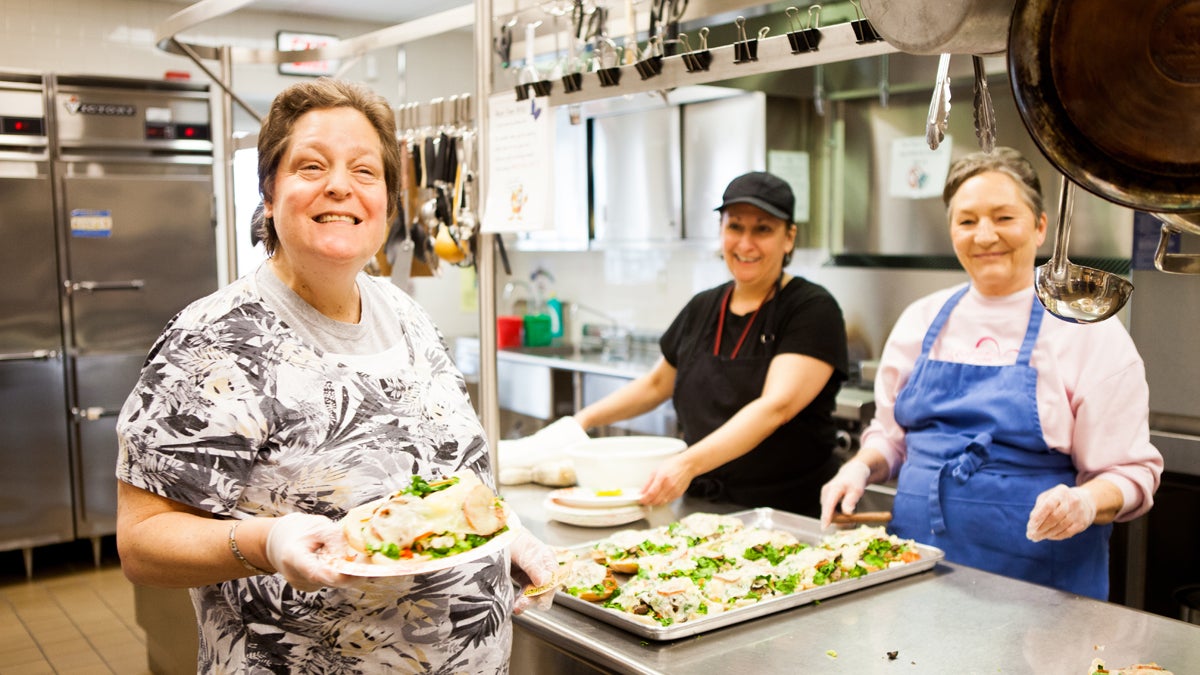Pew grant brings cognitive remediation therapy to adults with mental illness in Bucks County
Listen
Clients of the Wellspring Clubhouse work in the cafe and run the day-to-day administration as a part vocational rehabilitation programming. (Image courtesy of the Penn Foundation and Wellspring Clubhouse)
Penn Foundation’s Wellspring Clubhouse in Bucks County has received a $180,000 grant from Pew Charitable Trusts to provide a new rehabilitation program, called cognitive remediation therapy, starting this summer.
This technique rewires connections in the brain to help people with severe mental illness perform basic cognitive tasks.
“What we noticed was that some of the individuals we were working with had some significant cognitive impairments,” said Lu Mauro, director of Wellspring Clubhouse, a rehabilitation program in Sellersville. “This would include things like memory, recalling information, focus and attention, problem-solving, and understanding information provided verbally or in writing. We were really stuck in how to move forward.”
Mauro, who said the grant will fill a gap in the area’s rehabilitation services for adults with severe mental illness, said she’s hoping it will help clients find jobs and live more independently.
Mauro said the therapy works because the brain is always changing, and practice encourages the growth of new connections. “It’s based on the idea of neuroplasticity — the idea that the brain, over the course of a lifetime, can reorganize itself and create new neural pathways,” he said.
CRT takes the form of computer-based tasks, which Mauro described as “kind of like computer games.” The Clubhouse plans to incorporate CRT into clients’ existing rehabilitation programs, such as job-skill development and programs that support members as they return to work or school.
“We’re hoping that people will have greater skills in managing their everyday, remembering things that we take for granted — for example, when renting an apartment, remembering that we need to take our trash out every week,” said Mauro.
Dr. Mark Salzer, chair of Rehabilitation Sciences at Temple University, said the body of evidence supporting cognitive remediation therapy has grown in the past 20 years – and that it works best in concert with other interventions.
“If we’re trying to help somebody in the area of employment, there are different evidence-based practices in that area, and there’s some research that says when you add cognitive remediation to that, it has an important effect,” said Salzer.
However, when it comes to employment for people with serious mental illness, he said there is there is no magic bullet.
“You know, we haven’t found a cure yet,” said Salzer, citing stigma and other external forces – such as the types of short-term employment available to people with serious mental illness and inequalities in education – as more persistent and important barriers.
Twenty-one clients will participate in the pilot year of cognitive remediation therapy at Wellspring. Pew will fund the initiative, as well as an additional staff person to conduct mobile outreach, for three years.
WHYY receives funding from PEW.
WHYY is your source for fact-based, in-depth journalism and information. As a nonprofit organization, we rely on financial support from readers like you. Please give today.

